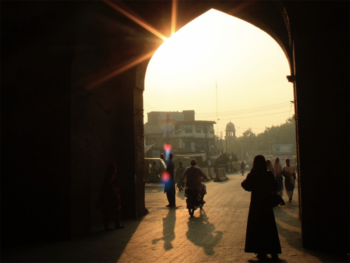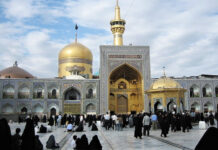When we think of humanitarian concerns, typically, we think of Africa, the Middle East, and areas of Southeast Asia. Pakistan is a nation that garners less attention than neighboring India and Afghanistan. There is no Islamic extremist group that has seized control of the country like the situation in Afghanistan, nor is it governed by radical Hindu nationalists who use anti-conversion laws to target Christians like in India.
garners less attention than neighboring India and Afghanistan. There is no Islamic extremist group that has seized control of the country like the situation in Afghanistan, nor is it governed by radical Hindu nationalists who use anti-conversion laws to target Christians like in India.
In a way, the situation in Pakistan is more egregious, as it combines the oppressive-like nature of radical Islam with the pseudo-legitimate cover of the nation’s laws to inflict persecution on its most vulnerable group.
The Islamic Republic of Pakistan has proven intransigent to other beliefs by enacting and abusing blasphemy laws. These laws create a divide that marginalizes the Christian community and encourages violence against Christians.
Forced conversions and marriages among women and girls, false blasphemy accusations, and discrimination are all forms of persecution faced by Christians and other religious minorities in Pakistan. Extremists often target Christian places of worship for deadly terrorist attacks. Many Pakistani Christians fear the possibility of further attacks, particularly when celebrating major Christian holidays.
Islamic extremist groups are active in Pakistan. The All Saints Church bombing in 2013 is evidence that the Pakistani government did not have a handle on terrorist activities. Jundullah, a terrorist group linked to the Taliban, took credit for the attack on the children of the All Saints school. They stated that Christians are the enemies of Islam and that attacks would continue so long as there are Christians in Pakistan. Terrorists hope to instill fear into believers, that they would condemn their faiths and return to Islam. Targeting children at school is a very potent message that these people have no issue killing the innocent to accomplish their goals. Yet, the church in Pakistan remains strong. ICC has seen the church rebuilt and the students tuition and needs met in the wake of the disaster. Ten years later, the church is still strong in Peshawar.
In visiting the persecuted church in Pakistan, ICC staff has walked away with a renewed drive to change things for our suffering brothers and sisters. Their resilience in the face of unjust blasphemy accusations, social boycotts, attacks from radicals, and deplorable living conditions is humbling. They cling to their faith not because it is easy (for it is certainly not), but because they recognize that the suffering is temporary–that the only happiness they feel is from God, and that they would rather live a meaningful life in Christ than an easy life in Islam. — International Christian Concern






